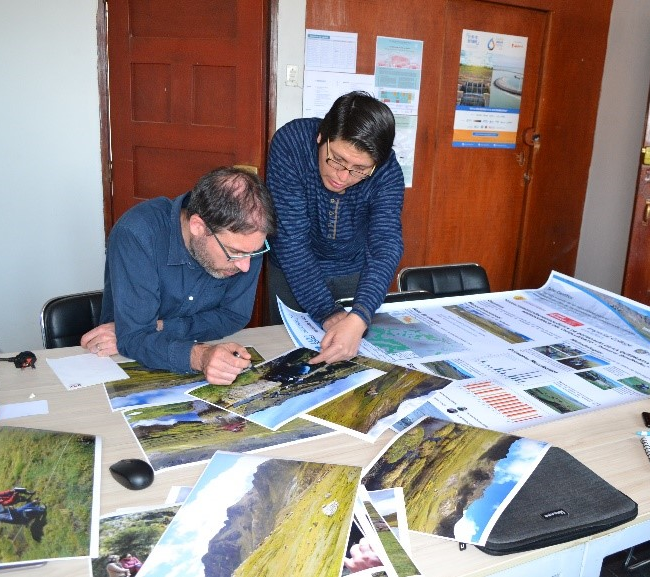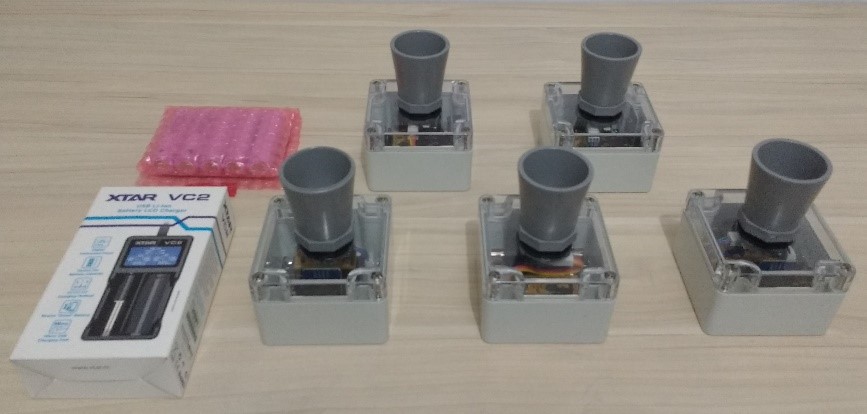
Since 2015, the Agua-Andes Program of Centro de Competencias del Agua (PAA-CCA) and Imperial College London (ICL) have been conducting scientific projects on water resources in the Andean region under the direction of Dr. Bram Willems (PAA-CCA) and Dr. Wouter Buytaert (ICL). This synergy emerged from the identification of common study objectives related to the understanding of the hydrological processes of high Andean ecosystems (especially the wetlands/bofedales), the quantification of the benefits of the services they provide, and the evaluation of impacts of anthropic activity and climate change. Both institutions seek to disseminate the information they generate to decision-makers, in order to contribute to the development of management tools that will contribute to the sustainable development of society.

In this context, from 20-24 January 2020, Martín Leyva, who is the Scientific Coordinator of the PAA-CAA, made a technical visit to the Hydrology and Water Resources Research Group of Department of Civil and Environmental Engineering of ICL, which is composed of specialists in hydrology from different parts of the world. The purpose of the visit was to design activities and proposals for capacity building of the PAA-CCA technical team for the development of new research projects about the hydrology of high Andean ecosystems.
Martín’s visit to the UK coincided with the final workshop of the Collaborative Project: Strengthening local capacities for the sustainable management of Andean headwater wetlands facing global change (Contract No. 225-2018-FONDECYT), which has been undertaken through an alliance between Peruvian University Cayetano Heredia (UPCH) and the University of the West of England (UWE Bristol), with the direct collaboration of PAA-CCA, ICL, Agricultural Development Center (CEDAP), San Cristobal de Huamanga National University (UNSCH) and the Peasant Community of Chuschi in Ayacucho, Peru. The project has been supported by an Institutional Links grant under the Newton-Paulet Fund partnership.

monitoring systems in Peru
During the development of the project, data have been collected on the hydrological functionality of a bofedales system located in the Chicllarazo microbasin, one of the main microbasins contributing to the Cachi Hydraulic System, which is the most important water supply system for Ayacucho. Based on this initial information, we are currently working on proposals for hydrological monitoring systems, including low-cost equipment such as water sensors, which will give us a better understanding of the hydrological process, and allow us to engage in simulation and prediction, thus supporting decision-making.
***
The project Strengthening local capacities for the sustainable management of Andean headwater wetlands facing global change was supported by an Institutional Links grant, ID 413987121, under the Newton-Paulet Fund partnership. The grant is funded by the UK Department for Business, Energy and Industrial Strategy and CONCYTEC and delivered by the British Council. For further information, please visit www.newtonfund.ac.uk
